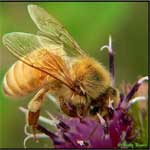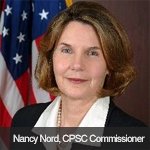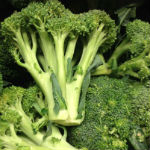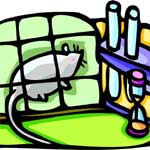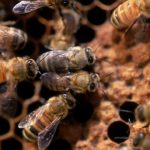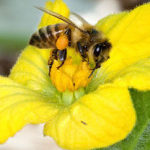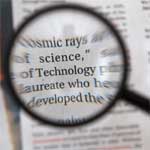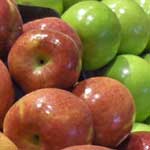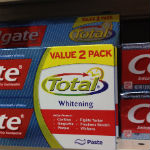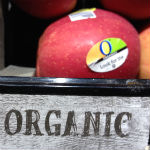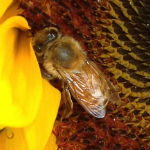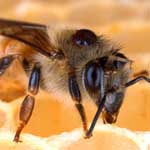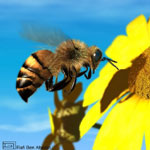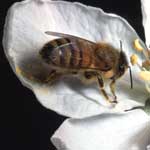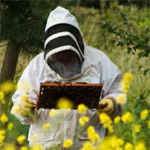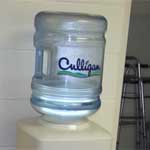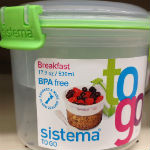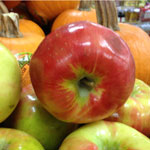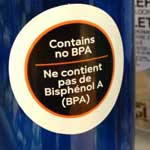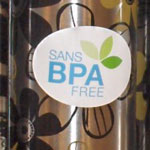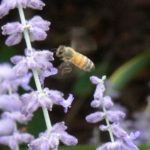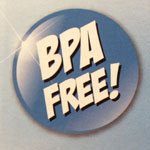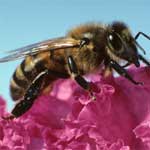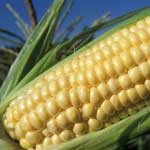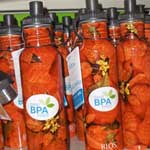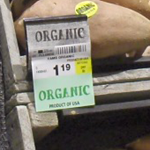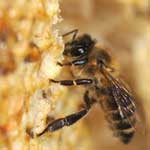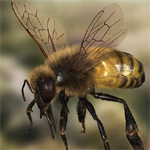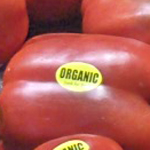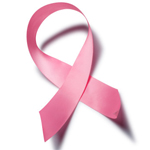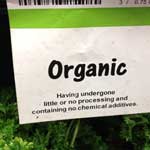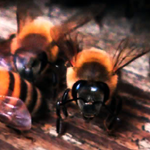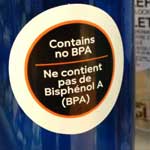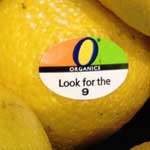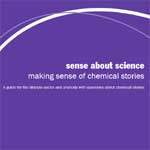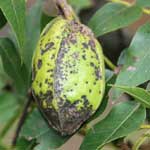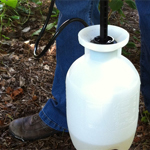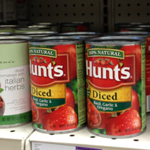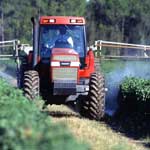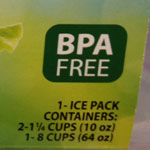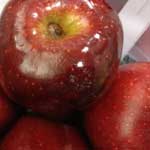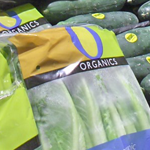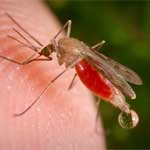"EPA Study Finds That Neonics Not Causing Colony Collapse Disorder In Bees," By Hank Campbell. A few years ago, bees suddenly had a sharp decline in numbers. This "Colony Collapse Disorder" as it is called, is a disorder in the sense that it is a recurring phenomenon, detailed for the last 1,000 years even when record-keeping just consisted of sporadic anecdotes. It was noted more frequently as record-keeping became more thorough. so it appeared far more often by the 1800s. By the 1900s, … [Read more...]
Nord: CPSC US Flawed Data for Proposed Phthalates Rule
"Phthalates NPR: Flawed Theory Supported by Flawed Data," by Nancy Nord. On March 16, 2015, the comment period will close for the CPSC’s proposed rule banning specified concentrations of phthalates in children’s toys and child care articles. While those who make and use phthalates are well aware of this proceeding, it has much broader implications for the entire regulated community. The proposed rule is flawed not only in terms of substance but also of process. The manner in which it used a … [Read more...]
EWG Discredited by Scientists
"Discredited by Scientists, Ignored by Media - It's Time for EWG to Retire Decades Old 'List'" by SafeFruitsandVeggies.com. A five-year analysis of media coverage of the Environmental Working Group’s (EWG) so-called “dirty dozen” list shows a steady decline in overall coverage, unbalanced coverage and consumer reach. And last week, when EWG released its 2015 list, mainstream media outlets largely ignored the “list” and coverage dropped to negligible levels. Until 2010, EWG’s list had become one … [Read more...]
Scientists Critical of Media Reporting
"Scientists Blast Media Treatment of Science Stories," by Center for Accountability in Science. Effectively communicating complex research and scientific data to the public is incredibly challenging. While many scientists rely on the media to cover their work, a new survey from the Pew Research Center finds that most scientists think the media’s treatment of science stories poses serious problems. Specifically, the survey found: Read more. … [Read more...]
Questions for EWG
"A 'Half Dozen' Questions for EWG," by SafeFruitsandVeggies.com. As they have for the last 20 years, the Environmental Working Group (EWG) released its “dirty dozen” list today which inaccurately disparages many of the most popular fruits and vegetables. To correct and counter the misinformation promoted by EWG, the Alliance for Food and Farming (AFF) provides science-based information to consumers which clearly show the safety of these popular fruits and veggies and the nutritional benefits … [Read more...]
Many Factors Behind Colony Collapse Disorder
"What Makes Honeybee Colonies Collapse?" by Joe Ballenger. Honeybee Colony Collapse Disorder has always interested me, because I’m interested in insect pathology – and this is probably the most important insect-pathology related event we’ll see in our lifetimes. I’ve written about CCD here at Biofortified, first in my post Colony Collapse Disorder: an Introduction. I followed this up with Are Neonicotinoids the Cause of Colony Collapse Disorder, where I talked about why the pesticide topic … [Read more...]
Neonicotinoid Ban in Europe Only Helps Pests
"Pests Invade Europe After Neonicotinoids Ban, With no Benefit to Bee Health," by Rebecca Randall. This month, more than 100 natural food brands, including Clif Bar and Stonyfield, joined together in a drive to encourage the Obama Administration to ban pesticides linked to bee deaths. The culprit, they say, is neonicotinoids, which is a class of chemicals commonly called neonics, introduced in the 1990s, that are mostly coated onto seeds to help farmers control insects. ...Yet, as activists … [Read more...]
BPA Exposure Deemed Safe, Again, Again and Again
"Exposure To BPA – It’s Not What Some People Think," By Steve Hentges. Both the European Food Safety Authority (EFSA) and the U.S. Food and Drug Administration (FDA) have recently released assessments that strongly support the safety of bisphenol A (BPA). In both cases, a body of studies documenting 1) low exposure, primarily from the diet; 2) efficient metabolism as BPA is absorbed in the gut; and 3) rapid elimination from the body provide key support for the safety conclusions. In contrast, a … [Read more...]
Weighing the Evidence: Chemical Risks
"Weight Of Evidence: How To Make Sense Of Reports On Toxicology And Pesticides," by News Staff at Science 2.0. There are tens of thousands of human-made chemicals circulating today and some have been bad despite studies that didn't initially find harm, yet almost every chemical is under siege by environmental groups, and they all claim science is on their side. Everything from bisphenol A used in plastics to neonicotinoid pesticides to glyphosate weed-killers are criticized by lawyers at … [Read more...]
Data Show Yet Again: Pesticide Residues Are Negligible
"Agriculture Shows Responsible Pesticide Use," By Dale Hildebrant. You usually don't have to look far to find some group that criticizes the use of pesticides in the agricultural industry. Food safety groups, consumer organizations and even a scattering of ag groups condemn the use of pesticides when it comes to raising crops of any kind. But recently some good news about pesticide use was reported and it came in the form of the annual Pesticide Data Program. This is a collaborative effort … [Read more...]
Myths about Triclosan Debunked
"The Debate Rages On – Triclosan/Copolymer: Debunking the Myths," by By Maria Perno Goldie, RDH, MS. There have been claims in the news lately that triclosan is unsafe for humans. As with any product, toxicity is determined by the dosage, and the amount of potentially toxic ingredients in a product. This article discusses the efficacy of dentifrices containing triclosan, and the fact that there is currently not enough evidence to recommend avoiding use of products that contain triclosan. … [Read more...]
Consumers Confused About Organic Food Rhetoric
"Study Shows Conflicting Statements on Healthy Eating May Be Impacting Low Income Consumers," By SafeFruitsandVeggies.com. A new peer reviewed study shows that conflicting messaging on food safety and nutrition may be having a negative impact on consumers, especially those with lower incomes. Researchers at the John Hopkins Center for a Livable Future conducted the study which was published in the journal Culture, Agriculture, Food and Environment and titled, “’They Just Say Organic Food Is … [Read more...]
Bee Experts Dismantle Touted Harvard Study
"Bee Experts Dismantle Touted 'Harvard' Neonics-Colony Collapse Disorder Study As 'Activist Science,'" by Jon Entine. Chensheng Lu was in his element last month at a speech before a green group at Harvard Law School. The School of Public Health professor was lecturing on his favorite topic--his only subject these days, as it has become his obsession: why he believes bees around the world are in crisis. Lu is convinced, unequivocally, that a popular pesticide hailed by many scientists as a less … [Read more...]
Pseudo-Science, Neonics, and Honeybees
"Still More Politicized Pseudo-Science? The Neonics and Honeybees Saga Takes Interesting, Potentially Fraudulent Turn," by Paul Driessen. Insisting that scientific evidence shows a clear link between neonics and honeybee population declines, EU anti-insecticide campaigners persuaded the European Union to impose a two-year ban on using the chemicals. Farm organizations and the Union’s Environment, Food and Rural Affairs Department unsuccessfully opposed the ban, arguing that evidence for a link … [Read more...]
Congress Should Stop Funding Activist Science on BPA
"A Taxpayer-Funded Family Feud," By Tom Schatz. It is bad enough when an agency spends taxpayer money foolishly, but it is even worse when those expenditures end up undermining the conclusions of another agency. Between 2000 and 2014, the National Institute of Environmental Health Sciences (NIEHS), part of the National Institutes of Health (NIH), sent $172.7 million in grant money to scientists to study the chemical bisphenol A (BPA) and its effect on humans, particularly as an endocrine … [Read more...]
Honeybee Hype and Scandal
"IUCN’s Anti-Neonic Pesticide Task Force: An Exposé into Activist Science," By The Risk Monger. The Risk-Monger recently came across a strategy document carelessly left on-line by activist scientists that lies at the heart of the founding of the IUCN Taskforce on Systemic Pesticides. The Addendum to this document (see page 3) spells out a rather distasteful anti-neonicotinoid campaign strategy lacking in scientific integrity. The process has been tried and tested before by activists, but their … [Read more...]
U.S. Farmers Need to Challenge Anti-Pesticide Policies
"A Wake-Up Call For U.S. Farmers: The EPA Is Trying To Put You Out of Business, By Henry L. Miller. The Environmental Protection Agency is arguably the worst regulatory agency in the history of the world. But perhaps I understate. EPA has long been highly politicized, disdainful of science, relentlessly incompetent and corrupt. The agency is a miasma populated by the most radical, disaffected and anti-industry discards from other agencies, who collude secretly and sometimes illegally with … [Read more...]
Organic Food Marketing and Homeopathy
"Top Organic Marketing Trustees Resign Because A Member Ridicules Homeopathy," By Hank Campbell. Psychics, homeopaths, magic soap buyers, anti-vaccine and anti-energy people, they all share one thing in common - no, no, not the same political party (good guess, though!), they embrace organic food. And if you don't also embrace their giant swath of superstitious crackpottery, they might depart in a huff. Now that Big Organic is a $105 billion industry, I suspect they would like to quietly but … [Read more...]
Flawed Studies on Neonics and Bees
"Part II: Bee Deaths And CCD - Flawed Chensheng Lu Harvard Studies Endanger Bees,"By Jon Entine. Last week, in Part I of this two part series, "Bee Deaths Mystery Solved? Neonicotinoids (Neonics) May Actually Help Bee Health”, we explored the claims by Harvard School of Public Health researcher Chensheng Lu, heralded by anti-pesticide and anti-GMO advocacy groups, for his research that purportedly proves that the class of chemicals known as neonicotinoids are killing bees and endangering … [Read more...]
Neonics Good for Honeybees?
"Part I: Bee Deaths Mystery Solved? Neonicotinoids (Neonics) May Actually Help Bee Health," By Jon Entine. Reports that honey bees are dying in unusually high numbers has concerned many scientists, farmers and beekeepers, and gripped the public. There have been thousands of stories ricocheting across the web, citing one study or another as the definitive explanation for a mystery that most mainstream experts say is complex and not easily reducible to the kind of simplistic narrative that … [Read more...]
BPA Science Overload?
"The BPA Paradox – Too Many Studies?" By Steve Hentges. For many years, scientists around the world have been intensely interested in bisphenol A (BPA), a common chemical used to make polycarbonate plastic and epoxy resins. But what have we learned from the supersized investment in research on this one chemical, and what can we expect in the future? Recent articles suggest that we haven’t learned as much as might be expected from such a large investment, but more research on BPA is probably in … [Read more...]
Endocrine Disruptors and Male Fertility
"Phthalates And Prostates: Endocrine Disruptors Shortening The Distance Between Male Anus And Penis," By Hank Campbell. Men are becoming more effeminate. That is not news. If you watched the ESA's Rosetta mission arrive at Comet P67 you saw a tattoo-covered fellow talk about engineering and he looked manly, but two days later he was crying during a press conference because his bowling shirt had offended women on Twitter. The signs of feminization are not just present in large, bearded men … [Read more...]
Beekeeper Rejects Anti-Pesticide Campaign
"Bees, Bans and Bungling: How an Anti-pesticide Campaign May Spell Serious Trouble," by Claire Brownell. At the end of a long day in the field, Ontario beekeeper Hugh Simpson is on his way to a meeting, where he’s looking forward to a packed agenda talking shop. Bee talk. Honey discourse. And absolutely not about banning pesticides. In March, Mr. Simpson was involved in forming the Independent Commercial Beekeepers. So far, the group has attracted about 20 members, based out of Ontario’s … [Read more...]
Recall: Whole Foods Organic Almonds
"Organic At Your Own Risk: Whole Foods Almonds Contain Hydrogen Cyanide," By Hank Campbell The U.S. Food and Drug Administration (FDA) is warning Whole Foods customers not to consume a line of organic raw almonds due to elevated levels of hydrogen cyanide (prussic acid/formonitrile - chemical formula HCN). Hydrogen cyanide is a natural toxic chemical that interferes with oxygen in our organs so it can quickly be fatal, but even in smaller exposure can be damaging to the central nervous system, … [Read more...]
No Need to Fear Dr. Oz’s “Secret” Chemical Ingredients
"Dr Oz and Phthalates," By Dr. Joe Schwarcz. The title of the segment on the Dr. Oz Show was “The Secret Ingredient Companies are Hiding in Your Food.” What could that be? Some opiate to keep you coming back for more? Tetrahydrocannabinol to increase appetite? No. The segment was all about chemicals called phthalates. And companies are not hiding their presence any more than they are “hiding” the presence of numerous substances that are not added to our food supply on purpose but can be … [Read more...]
BPA Risky Only in “Alternative Universe”
"The Alternative Universe In Which BPA Is A Major Health Threat," By Geoffrey Kabat. With an estimated 40 percent of Americans, according to a Harvard poll, worried that they could contract Ebola, two days ago the journal PLoS ONE published a paper which claims to show that handling of cash register receipts puts you a risk of myriad diseases. The paper is from a group at the University of Missouri headed by Frederick vom Saal, a biologist who has the distinction of being the driving force … [Read more...]
University Level Anti-Chemical Scare Power
‘Monsters University’ is Real — I Work There, By Anonymous. What if those scary Halloween monsters … were real? That’s the premise of the movie “Monsters, Inc,” where the monsters work year-round. And they don’t just extort candy. Their entire world runs on “Scream Power” — let’s simply call it “Scare Power” — and harvesting it is even more productive than fracking. We see in the more recent “Monsters University” that “it takes a University” to make the Scare Power industry work. The heart of … [Read more...]
BPA Science and Media Explained
"BPA in the Media – Let’s Read Between the Lines Before Drawing Conclusions," by BPA Coalition. This fall, writing about science has been the new black. However, communicating science to non-scientists is more difficult than one may think. Keeping the meaning intact while getting rid of the jargon often proves a daunting exercise. And unfortunately, readers, unless scientists themselves, often cannot make the difference between an informed and an uninformed piece. This why we compiled an … [Read more...]
Unfounded Fears About BPA Plastic Containers
"Bogus Anti-BPA Research," by By Erik Telford. Based on reading trend articles and the little stickers affixed to Nalgene water bottles, one might readily conclude that BPA, the common acronym for bisphenol A, is the contemporary danger to public health that lead was half a century ago. BPA is a chemical used in the manufacture of many hard plastics and epoxy resins. When used in food packaging and containers, it helps to prevent spoilage, increases shelf life, and makes containers reusable. … [Read more...]
BPA Exposure Levels Too Low to Worry About
"Million Here, Million There for BPA: Politicized Research Marches On," by BiomonitoringInfo.org. An article in The Hill’s Congress Blog confirms what many of us who have been following the scientific literature have observed: Research spending on bisphenol A (BPA), including biomonitoring studies, has increased dramatically in recent years. BPA research frequently claims health effects from chemical exposure. As Mattie Duppler writes in “Millions for ‘pointless’ research” on Congress Blog, … [Read more...]
EWG Calls for “Actual Science” Instead of Rhetoric, But …
“Rhetoric is no Substitute for Actual Science and Hard Evidence," By SafeFruitsandVeggies.com. Ironically, this is a quote from an Environmental Working Group (EWG) blog today. And we couldn’t agree more. Yes EWG, science and evidence should take precedence over baseless rhetoric. So stop using scary rhetoric to mischaracterize risk when it comes to pesticide residues on produce in direct contrast to the “actual science and hard evidence.” So let’s review the science. Read more. … [Read more...]
BPA Science
"Trust Robust Science, Don’t Blame BPA", By BPA Coalition. The exposure of a fraud who stoked BPA fears to advance his career should remind us all to trust robust science from authoritative sources. On September 10, NBC News in the United States revealed that Anoop Shankar, a researcher at West Virginia University, had fabricated his qualifications to obtain his position and also allegedly altered his research findings. This is of particular interest for the BPA Coalition because several of his … [Read more...]
Deborah Blum’s “Poisoned Pen”: BPA Hype
"The Raging Controversy Over BPA Shows No Signs Of Abating," by Geoffrey Kabat (STATS). But that doesn’t mean that the two opposing sides have equal merit. In her “Poison Pen” blog in last week’s New York Times, the science writer Deborah Blum calls attention to new research that raises alarming questions about adverse effects on the female reproductive organs from exposure to BPA (bisphenol-A). Her article is titled, “In Plastics and Cans, a Threat to Women.” Blum described work by Jodi Flaws, … [Read more...]
Dutch BPA Investigation: Current Science Indicates Low Risk
"Dutch Public Health Institute ‘State of Knowledge’ on BPA: Not a Risk," By BPA Coalition. The news about bisphenol-A (BPA) continues. Last week, the Netherlands’ National Institute for Public Health and the Environment (RIVM) issued Part 1 of its investigation into BPA. RIVM’s report did not evaluate or cite specific studies but summarizes conclusions from earlier evaluations. Part 1 “gives an overview of the state of knowledge about BPA”. The institute’s appraisal of the available information … [Read more...]
Pesticide Bans Doing Harm Rather than Good
"EPA Pesticide Bans Threaten You and the Economy," By By Alan Caruba. When Rachel Carson’s book, “Silent Spring”, was published, filled with totally false claims about DDT, the Environmental Protection Agency looked it over and concluded she had used manipulated data. They concluded that DDT should not be banned, but its first administrator, William Ruckleshaus, overruled the agency and imposed a ban. ... I cite this history from the 1970s because most people believe that the EPA operates on … [Read more...]
Hype about Window Caulk and PCBs
"When There Is A Penis Mystery, Just Blame Endocrine Disruptors," By By Hank Campbell. Cindy Crawford says polychlorinated biphenyls (PCBs) will cause her son not to reproduce. She hasn't gone full-on Jenny McCarthy or anything, but there's never been a single study to find PCBs in window caulk can be an endocrine disruptor. There haven't been PCBs linked to reproductive issues at all, except in cases where animals in labs have been subjected to surfactants and gavage dosing of the stuff - the … [Read more...]
“BPA Free” Now Under Attack
"Meet BPA-Free, The New BPA," By Steve Hentges. There’s an emerging trend, of late, in the seemingly endless saga of the chemical bisphenol A (BPA), which is most commonly used to make polycarbonate plastic and epoxy resins. Although the BPA saga has not yet become completely passé, much of the attention that had been given to BPA is now focused on alternatives to BPA. Indeed, it seems that BPA-Free is becoming the new BPA. For what seemed an eternity, BPA had been at the center of a perfect … [Read more...]
Honeybee problems: Complex and Multiple
"No Simple Answer to Bee Issues Exists," By Henry I. Miller, MD. Jennifer Sass's comments about my op-ed "The Buzz About a Bee-pocalypse Is a Honey Trap" are misguided and misleading (Letters, Aug. 6). Although the number of U.S. honey bee colonies has fallen from a World War II peak of about five million to around 2.5 million today, the number of U.S. bee colonies has remained relatively stable and has even slightly increased over the two decades since neonicotinoid pesticides ("neonics") were … [Read more...]
The Buzz About a Bee-pocalypse
"Why the Buzz About a Bee-pocalypse Is a Honey Trap" By Henry I. Miller. On June 20 the White House issued a presidential memorandum creating a Pollinator Health Task Force and ordering the Environmental Protection Agency to "assess the effect of pesticides, including neonicotinoids, on bee and other pollinator health and take action, as appropriate." Why the fuss over bees? Is the U.S. in the midst of a bee-pocalypse? The science says no. Bee populations in the U.S. and Europe remain at … [Read more...]
Pesticides and Public Health
"Pesticides and Health: What You Need to Know," By IFIC Foundation. “Pesticide” can be an ominous sounding word to the average consumer. The suffix “cide,” which comes from Latin cidere meaning “to kill,” has its roots in Shakespearean literature (“Beware the ides of March.”) But in today’s modern world, it has very little to do with Shakespeare. Pesticides have come under scrutiny by some groups and individuals expressing concerns about everything from food safety to nutritional quality to … [Read more...]
California Regulator Details Pesticide Benefits
"Viewpoints: Pesticides are Critical to Providing a Safe, Reliable Food Supply," By Brian R. Leahy. Last year I managed to lose a tooth due to a sliver of a wayward pistachio shell. As a result, I have come to know an excellent oral surgeon in Sacramento who is Harvard-educated and has a wicked sense of humor. On my last visit, he told me that he had just harvested his backyard plums. With a big smile, he said that because he had not used any pesticides on his fruit he did not fall under my … [Read more...]
Beekeeper Questions Claims about Honeybees and Pesticides
"Another View: Evidence is Questionable that Pesticide is Harming Honeybees," By Randy Oliver. I commend The Bee for promoting environmental awareness (“ A lot is riding on finding culprit in honeybee deaths”; Editorials, July 27). However, contrary to popular myth, honeybees are actually in no danger of extinction. In fact, the number of managed bee hives has been increasing in the U.S. and nearly every country in the world. The reality is that the number of hives goes up and down depending … [Read more...]
Quack Alert: NaturalNews.com
"If You Care About The Organic Revolution, Disavow Mike Adams," By Hank Campbell. Revolutions are messy business, they require participation by a type of personality that is not very savory; militant, bombastic, a little crazy ... In the American Revolution, Sam Adams was the firebrand. He had lost his shirt as a businessman but found his calling as an extreme patriot. His form of zealotry was unwelcome at the national level after the war was won, however. Organic food has its own Adams doing … [Read more...]
Questionable Study on Organic Food
"Study Funded by Organic Ideologues Finds Organic Benefits," By Center for Consumer Freedom. A new review funded by the U.K.-based organic farming group Sheepdrove Trust reported in the British Journal of Nutrition that organic crops are healthier than the non-organic variety. It’s a convenient finding for the Trust’s stable-mate, Sheepdrove Organic Farm, which will happily sell Britons any number of organic food products they produce. The group is elated by conclusions of the report it paid … [Read more...]
Honeybee Health, Neonicotinoids, and Misinformation
"The Honeybees Are Just Fine," by Richard Tren. Is a relatively new class of insecticides, known as neonicotinoids or "neonics," harming bees and other wildlife? That's what the International Union for the Conservation of Nature claimed in a recent press release announcing the results of a meta-study the organization conducted earlier this year. One might have expected the press release to be accompanied by the underlying scientific studies. But that wasn't the case. Read more. … [Read more...]
BPA Exposure and Your Health
"Are You Exposed To BPA, And Does It Matter?" By Steve Hentges. For quite a few years, one of the most popular chemicals for scientific inquiry has been bisphenol A (BPA). Scientists around the world have been conducting a diverse array of studies aimed at understanding whether BPA poses a risk to human health. Based on the weight of evidence from these many studies, the U.S. Food and Drug Administration (FDA) recently answered the question “Is BPA safe?” with a simple and unambiguous answer - … [Read more...]
Questionable Organic Food Study
"Is Organic Food More Nutritious And Safer Than Conventional? Reviewing A Recent Systematic Review," By Hank Campbell. A recent review in the British Journal of Nutrition concluded that the nutritional quality and safety of organic food was higher than conventional food. Fruits, vegetables, and grains, organic versions were better in all ways than conventional farming, they determined. Organic food had fewer pesticides, a much different result than other studies, and also had more important … [Read more...]
Science Not Politics to Help Honeybees
"Beekeepers/Farmers Need Answers, not Giant Inflatable Bees," By Elton Robinson. Protestors insisted that Loews remove neonicotinoid insecticides from its shelves. But the protestors once again cited poorly-constructed research about the insecticide's role in bee health. Last month, members of group called SumOfUs.org, sporting a giant inflatable bee, organized a protest at a Lowe’s shareholder meeting, insisting that the corporation “remove bee-killing neonicotinoid insecticides from its … [Read more...]
Lawmakers Speak Out on Honeybee Issue
"Cutting Through the Buzz: Pollinator Numbers Are Up," By Reps. Tom Rooney and David Valadao. For some time now, the media has been issuing dire warnings of the coming “bee- pocalypse.” Time magazine ran a cover story titled, “A World Without Bees.” A headline in the London Telegraph proclaimed “Honey bees in US facing extinction.” CBS warned of the drastic threat to our food supply if these essential pollinators are lost. Yet reports of bees’ catastrophic demise are greatly exaggerated. … [Read more...]
A Plan for Saving the Honeybees?
"Can Obama Save the Honey Bees?," by David Clark Scott. Who could be against saving the honey bees? For politicians, this is what's called an "Apple Pie" issue. And who pollinates the apple trees? On Friday, Obama signed a presidential memo ordering the federal government to come up with a plan for protecting pollinators such as honey bees, butterflies, birds and bats. "The problem is serious and requires immediate attention to ensure the sustainability of our food production systems, avoid … [Read more...]
Bee-S Beepocalypse
"Bee-S Beepocalypse - Don't Make The Perfect The Enemy Of The Good," by Hank Campbell. Generally speaking, when a politician goes on television and says he is creating a special task force to look at a product, you know what happened; someone wrote about it in the New York Times and someone did a poll and someone else told him it would look presidential to be bold. And then someone in the environmental movement will invoke DDT. Really, the EPA was not created 40 years ago to protect us from … [Read more...]
Honeybee Science
"Activists Declare The Science Settled - Neonicotinoids Are Killing Bees," By Hank Campbell. Want to scare people about a pesticide? Compare it to DDT. 40+ years after it was banned in a bit of scientization of politics, people have still heard of it. DDT may be the only pesticide many people have ever heard of. Environmental groups love to invoke it for that reason. But if you are a fan of science, when you see a DDT comparison, you know evidence has left the building. DDT, when misapplied, … [Read more...]
Blaming Shower Curtains for Obesity
"Do We Really Have to Worry About Shower Curtains Causing Weight Gain?" by Geoffrey Kabat, Stats.org. Several days ago an article titled “Is Your Shower Curtain Making You Fat?” appeared in the magazine Spry and was then reprinted in the Dodge City Daily Globe. The article drew readers’ attention to the dangers of endocrine disrupting chemicals (EDCs), giving 5 examples of chemicals used in everyday consumer products (BPA, phthalates, PVC, PFC’s, and PBDFs). With a quote from a professor of … [Read more...]
Organic Labeling Double Standard
"Organic Lobbyists Petition To Prevent USDA From Having Organic Food Oversight," By Hank Campbell. Since 1990 organic food has been allowed to exist independently of the U.S. Department of Agriculture (USDA), the one federal agency responsible for food safety and quality. Sure, organic food still gets recalls, lots of them - using feces as fertilizer and having customers who think food doesn't need to be washed will do that - but the definition of 'organic' is not determined by the USDA. Those … [Read more...]
Infectious and Unscientific Attack on Antibacterial Soap
"Green Group's Unscientific Attack on Soap," By Erik Telford. The Food and Drug Administration (FDA) is tasked with promoting public health by ensuring the safety and efficacy of medicines and consumer products. But like most federal bureaucracies under the Obama administration, it has allowed its regulatory agenda to be influenced by activist groups. The FDA’s latest target is, of all things, antibacterial soaps, which fringe activists believe pose a variety of health and environmental … [Read more...]
Greens Admit: BPA Does Not Cause Breast Cancer
"BPA A Concern For Breast Cancer? Not According To Study By Leading Environmental Group," by Trevor Butterworth, Stats.org. A massive synthesis of data from the National Toxicology Program and consensus reports from international cancer authorities has identified 102 chemicals as critical for breast cancer research and prevention. The list, compiled by researchers from the Silent Spring Institute and the Harvard School of Public Health, is derived from studies of chemical exposures and mammary … [Read more...]
Ban Threatens Honeybees and Farming
"There is No ‘Bee Armageddon’: Misguided Neonics Ban Threatens Honeybees and Farming," byJon Entine, Stats.org. Science can’t be rushed. Usually legislators make policy decisions on controversial issues only after carefully weighing current research. But just the opposite has unfolded in the EU. European Commissioners last year passed a two-year ban on a class of pesticides known as neonicotinoids in a preemptive move to protect honeybees, after sketchy reports of higher-than-normal winter … [Read more...]
Pesticides Used on Organic Food
"The Biggest Myth About Organic Farming," By Ross Pomeroy. The majority of Americans believe that organic foods are healthier than food grown using conventional methods. The majority of Americans are wrong. Two systematic reviews, one from Stanford University and the other by a team of researchers based out of the United Kingdom, turned up no evidence that organic foods are more nutritious or lead to better health-related outcomes for consumers. But the idea that organic foods are healthier … [Read more...]
Regulators More Dangerous than Pesticides
"Killer Regulators Are More Dangerous To Bees Than Neonics Are," By Hank Campbell. At a time when the EPA is rushing to place new regulations on the one thing that is still cheap and increasingly environmentally effective in America, energy, it may seem strange to laud the EPA. But career scientists do solid work there. I made that point in a comment about Rachel Carson and "Silent Spring" recently. While the book was not very solid scientifically it was certainly effective culturally. Every … [Read more...]
Bee Busybodies Rebuked
"Bad News for Bee Busybodies," Washington Times Editorial. The hardy honeybees are back, having returned from dark and mysterious places in the imaginations of the environmentalists. The latest numbers from the Agriculture Department are a stinging rebuke to the doomsayers who spread hysterical tales of a mysterious apocalypse of beedom. In the latest annual survey, federal bee counters reported the lowest rate of over-the-winter bee losses in nearly a decade. Beekeepers call a loss of 19 … [Read more...]
FDA: BPA Dose is Too Low to Have Health Effects
"FDA: No Low-Dose Chemical Dangers," by Dennis Avery. The Food and Drug Administration has just loudly re-endorsed perhaps the oldest truth in science—that the dose makes the poison. Paracelsus, the father of toxicology, told us 500 years ago, “All substances are poison. There is none which is not a poison. The right dose makes the difference between a poison and a remedy.” Even sunlight and water are poisons at high doses. The FDA has just commented on a new study which found no health impact … [Read more...]
Green Calls for BPA Ban Unwarranted
"Left Wants EPA To Ban Chemical FDA Says Isn't Harmful," By Merrill Mathews. President Ronald Reagan famously asserted, "The nearest thing to eternal life we will ever see on this earth is a government program." He might have added that the second nearest thing is a completely discredited left-wing cause. Exhibit A: Since the left can't convince the U.S. Food and Drug Administration to outlaw the chemical BPA, it wants the Environmental Protection Agency to take over. Bisphenol-A (BPA) is … [Read more...]
Tackling Anti-Chemical, Unscientific Nonsense
"Manmade or Natural, Tasty or Toxic, They're All Chemicals …" by Mark Lorch. Chemicals are bad, right? Otherwise why would so many purveyors of all things healthy proudly proclaim their products to be "chemical-free" and why would phrases such as "it's chock full of chemicals" be so commonly used to imply something is unnatural and therefore inherently dangerous? On one level these phrases are meaningless – after all, chemicals are everywhere, in everything. From the air that we breathe to the … [Read more...]
Too Strictly Organic?
"To “Be” or “Not to Be” Organic?" by Dan Janzen. The virtues of many aspects of the Organic Movement such as heightened concern for healthy eating, and increased sensitivity or aversion to exposure to toxins in the environment can be touted as very positive. However, to fully explore the impact of all aspects of the Organic Movement there are some important questions to consider. (1)Is it possible to cross the line in Organic Movement initiatives and “throw out the baby with the bathwater”, … [Read more...]
Making Sense of Chemical Stories
"Making Sense of Chemical Stories," by Sense About Science. The new edition of our public guide, Making Sense of Chemical Stories, was published by Sense About Science today with support from Royal Society of Chemistry. People are still being misled by chemical myths. This needs to stop. We urge everyone to stop repeating misconceptions about chemicals. The presence of a chemical isn’t a reason for alarm. The effect of a chemical depends on the dose. In lifestyle commentary, chemicals are … [Read more...]
Toll of Organic Farming
"The Hidden Cost of Organic Farming," By Dan Janzen. I was prompted to begin blogging upon my return from three and a half months of agricultural development work among the Nasa and Guambiano Native Americans in Cauca Department of Colombia. People were giving them books to read promoting 100% organic methods with all kinds of information which, in my opinion, was grossly misrepresenting the facts. Many different organizations including ones from the government were promoting 100% organic … [Read more...]
Unsustainable Organic Farming
"Organic Farming Is Not Sustainable," Henry I. Miller. You may have noticed that the organic section of your local supermarket is growing. Advocates tout organic-food production—in everything from milk and coffee to meat and vegetables—as a "sustainable" way to feed the planet's expanding population. The Worldwatch Institute, a Washington, D.C.-based environmental group, goes so far as to say organic farming "has the potential to contribute to sustainable food security by improving nutrition … [Read more...]
Misleading Organic Marketing
"Organic Marketing: Not Truthful, Often Misleading," By John R. Block. As someone who has dedicated his career to agriculture, I’ve often wondered what drives the now double-digit growth in the $35 billion U.S. organic products industry. Why are so many people willing to pay premiums up to 100 percent or more for items that carry an organic label, and do they really understand what that label means and — even more important — what it doesn’t mean? Many of these questions have now been answered … [Read more...]
Organic and “Pesticide Free” Not the Same
"Spending More For Organic Does Not Buy You Pesticide-Free," By Steve Savage. There are several different reasons people are willing to pay more for organic produce, but many consumers do so believing that it is a way avoid pesticide residues. That widely held belief is unfounded. Here is why: There are definitely pesticides used in the growing of organic crops. There are residues of those materials on the harvested products. Residues of synthetic pesticides are also frequently found on … [Read more...]
Anti-Pesticide Attack on Science
"Atrazine And The Forever War On Science," By Hank Campbell. I'll tell you up front, I am not a big fan of chemicals. It's not that I have chemophobia, or any science-phobia, I instead have that special sort of elitism that is available to people who have just been lucky enough to not need chemicals. I don't even like to take aspirin and I have that luxury because I haven't needed to take any drugs for a recurring condition, so it's really easy for me to embrace such naturalistic posturing. … [Read more...]
Growers Call for Science-based Approaches to Help Honeybee
"Growers say Pesticide Ban Won’t Solve Bee Problems," Eric Mortenson. The Oregon Association of Nurseries urges Congress to use a collaborative and scientific approach to regulating pesticides that some blame for honeybee deaths. Instead of banning the neonicotinoid class of pesticides, Congress should follow Oregon’s example and use a collaborative and science-based approach to improving honeybee health, the executive director of the Oregon Association of Nurseries said. OAN director Jeff … [Read more...]
BPA-Levels in Food Cans
"Canadian Government Study: Death From Overeating Before Any Risk From BPA," By Trevor Butterworth, STATS.org. The Canadian government, which helped to trigger worldwide fears about the effects of trace amounts of BPA in food by using the precautionary principle to guide risk management, continues to produce studies showing that precautionary thinking is wildly off the mark on BPA. The latest study on BPA sampled 403 domestic and imported cans containing fruit, vegetables, juices, other … [Read more...]
Questionable Study on Children and Pesticides
"For the Record: 'Children in agricultural areas are being exposed to a dangerous cocktail of pesticides,'" By Sense About Science. An article in the Guardian, 29th April 2014 reported that “Children in agricultural areas are being exposed to a dangerous cocktail of pesticides”. It referred to a report published by Générations Futures, a French health and environment group. Dr Paul Illing, a recently retired registered toxicologist and regulatory affairs consultant explains this is not what the … [Read more...]
Moms Need Not Fear BPA
"Despite Scare Stories, Fears about BPA are Unnecessary," By Cherylyn Harley LeBon. As soon as someone mentions BPA (bisphenol A), I recall the glasses and glass containers our family now uses to replace the plastic containers that previously populated our cupboards. Like many moms, my top priority is keeping my kids safe, so I was concerned about BPA in the past. When the media began reporting BPA might be toxic, we replaced the plastic products and other things in our home thought to contain … [Read more...]
Dirty Truth About Organic Produce
"Let Facts, Not Fear, Guide Healthy Food Choices," By SaferFruitsandVeggies.com. There are decades of nutritional studies that clearly show that consumption of fruits and vegetables improves health and leads to a longer life – these studies were largely conducted using conventionally grown produce. And, there is an impressive body of work by the government plus peer reviewed science that shows that residues, if they are present at all, do not pose a food safety concern. Yet certain activist … [Read more...]
Earth Day Chemistry Lessons
"This Earth Day, Thank A Chemist," By Hank Campbell. Earth Day is fast approaching and, let's face it, if you celebrate Earth Day you probably hate science. And you really hate chemists. But there has never been a reason for it, it is simply modern chemophobia. If you ask an environmentalist if they should use a chemical solvent or baking soda to clean, they will say baking soda - but baking soda is a toxic synthetic chemical (NaHCO3) unless it is used properly, where it is harmless and … [Read more...]
Junk Science on Glyphosate and (Roundup) Health Risks
"Debunking Pseudo Science “Lab Testing” Health Risk Claims about Glyphosate (Roundup)," by Academics Review. On April 7, 2014 a television “documentary” in Australia reported that a study of 10 nursing mother’s milk revealed the presence of glyphosate. This report referenced claims announced made by a “study” commissioned by anti-GMO activist group Moms Across America with “Sustainable Pulse,” an online “news service” published by anti-GMO campaigner and organic food entrepreneur Henry … [Read more...]
BPA Alarmism and Mother Jones’ “Expose”
"BPA: The Scientists, The Scare, The 100-Million Dollar Surge," by Trevor Butterworth. Conspiracy, incompetence, a federal agency out of control. A recent Mother Jones story by Mariah Blake indicts the Food and Drug Administration (FDA) as a threat to science and public health over the way it’s conducting research into bisphenol A (BPA), the never-ending chemical scare story of the 21st century. Raise the alarm (again), stir the pot (again), marshal outrage (again). And, if you have no other … [Read more...]
Consumers Misinformed About Organic Food
"Why Consumers Pay More for Organic Foods? Fear Sells and Marketers Know it," by Academics Review. An extensive review of more than 200 published academic, industry and government research reports into why consumers adopt organic product purchasing behaviors was conducted by Academics Review – a non-profit led by independent academic experts in agriculture and food sciences. This review was then supplemented with an assessment of more than 1,000 news reports, 500 website and social media … [Read more...]
Pesticides Vital to Food Production in India
"Debunking the Myths on Pesticides is Vital to Raise Food Production in India," By Rajju D Shroff. It is an unsupported claim commonly accepted that all pesticides are unsafe, both for crops and human health. In recent years, studies have highlighted the toxic effects of pesticides, especially in the long run. Most attacks have come from selfacclaimed environmentalists and some environmental NGOs, without enough research to even corroborate their findings. A major concern put forth by such … [Read more...]
Ignore Greens’ Dirty Politics
"Don't Let Annual List Release Put a Damper On Spring," by SafeFruitsandVeggies.com. It’s April now, spring is here which means an even bigger variety of healthy and safe fruit and veggies will be available to consumers at restaurants, grocery stores and farmers’ markets. But before consumers can get too excited, they’ll be greeted this month with the annual release of the “dirty dozen” list which inaccurately calls into question the safety of fruits and vegetables most popular among American … [Read more...]
Organic Food & Cancer Risk
"Organic Food Does Not Reduce Cancer Risk," By Hank Campbell. Organic food has built a lot of mythology around its process - more ethical, more nutritional, fewer pesticides, a larger penis for the sons of organic shoppers - but one claim was a puzzler only subscribed to by the kind of people who buy homeopathy and healing crystals; that eating organic might reduce the risk of cancer. The premise is logical, at least for organic shoppers, if only adjacently valid scientifically. Poor diet has … [Read more...]
Fishy “Link”: Glyphosate and Celiac
"A Fishy Attempt To Link Glyphosate And Celiac Disease," By Steve Savage. Stephanie Seneff (a computer scientist at MIT), and Anthony Samsel (a retired consultant), have recently been attempting to link the use of the herbicide glyphosate to a long list of modern maladies. Their latest such attempt to is Celiac disease. The overall argument for the glyphosate/Celiac link has already been quite thoroughly debunked by a Celiac expert, but there is one other good reason to dismiss the "link" which … [Read more...]
Triclosan’s Dental Benefits
"Triclosan: The Good, the Bad, and the Ugly," By Maria Perno Goldie, RDH, MS. There has been much chatter lately on social media regarding triclosan, and products containing triclosan. Allegations are being made that products contacting triclosan are being banned in certain countries and that it is an unsafe addition to oral care and other products. The “ugly” is that many of these accusations are unfounded and not based in science, and can blur the lines between personal preference and … [Read more...]
Eating Organic Has No Effect on Cancer Risk
"A New Study Has Found that Eating an Organic Diet Does Not Reduce the Risk of Cancer," by CBS Atlanta. Researchers monitored the health of 600,000 women aged 50 or older for nine years asking whether they ate pesticide-free organic food. Roughly 50,000 of the women developed one of the 16 most common cancers during the study period in total. No difference in overall cancer risk was found between a comparison of 45,000 women who “always” or “usually” chose organic food and 180 women who never … [Read more...]
Misinformation about Triclosan
"Editorial Counterpoint: Misinformation Fuels Fears about Triclosan," By Paul Deleo. The Star Tribune’s March 11 editorial supporting state legislation to ban the ingredient triclosan — found in a number of antibacterial soaps and body washes — contributes to a parade of misinformation and distortion that we have sadly seen in Minnesota as of late. Triclosan is the most reviewed and researched active ingredient used in antibacterial soaps and body washes. Antibacterial wash products with … [Read more...]
Pesticide Regulation Means Less Wheat to Feed World Population
"Curbing Pesticides Will Slash Wheat Yields," By AFP. France’s winter wheat harvest could shrink by over a tenth if farmers meet targets to halve pesticide use, said a study Thursday highlighting the challenge of feeding Earth’s growing population. The estimates come from field trials where scientists compared yields to cuts in pesticide use. Extrapolated for the country as a whole, halving pesticide use could mean a decline in winter wheat production of two to three million tonnes per year, … [Read more...]
New Yorker’s Attack on Science
"Turning Science into a Circus: The New Yorker, Rachel Aviv and Tyrone Hayes," By Bruce Chassy, Ph.D. Titled “A Valuable Reputation,” it purports to tell the story of Berkeley researcher Dr. Tyrone Hayes and how, after he supposedly revealed the harmful effects of a popular herbicide on frog development, the chemical’s maker attempted to discredit him. In subsequent statements by the author and other articles, this has morphed into allegations of a full-fledged corporate conspiracy one … [Read more...]
Questionable Claims About Pesticides and Health
"No, Pesticides Did Not Give Your Child A Tiny Penis - Or Autism," By Hank Campbell. In mainstream media, everywhere from Fox News to Time (and here on Science 2.0, though with a little more skepticism) a bizarre study is all the rage - pesticides and other environmental toxins will give your kid a malformed penis and cause autism. And state regulations...prevent it. This overturns all of epidemiology, right? Now something has to be done. Autism causes might be okay to debate in a reasoned … [Read more...]
Chemicals & Obesity
"Does BPA Make You Fat?" By Steve Hentges. As with most questions related to the common chemical bisphenol A (BPA), the answer to that question may depend on who you ask. The question is a particularly relevant one in recent years with the advent of the “environmental obesogen” hypothesis, which refers to “…chemicals that inappropriately alter lipidhomeostasis and fat storage, metabolic setpoints, energy balance, or the regulation of appetite and satiety to promote fat accumulation and … [Read more...]
Anti-Science Attacks on Public Health and Pesticides
"Anti-Science Environmentalists Ban 'Neonic' Insecticides, Imperiling Global Health," By Richard Tren. Some of history’s greatest advances in public health – especially in regions plagued by insect borne diseases – have come from the judicious use of pesticides to kill or repel the insect vector before it can infect human populations. Because the market for public health pesticides is relatively small, however, most of these vital chemistries were developed for larger agricultural uses. … [Read more...]
The New Yorker’s Puff Piece on Tyrone Hayes
"Did The New Yorker Botch Puff Piece On Frog Scientist Tyrone Hayes, Turning Rogue into Beleaguered Hero?" by Jon Entine. Who Is Tyrone Hayes and what’s the real story behind the University of California researcher’s sensational claim that he and his family are targeted victims of Big Ag? According to the amphibian scientist and as echoed in a recent 8,000 word mega-feature in the New Yorker by Rachel Aviv, Hayes is an addled but unfairly attacked whistler-blower, victim of a multi-year long … [Read more...]
FDA Research: BPA is Okay
"BPA Is A-OK, Says FDA," by Henry I. Miller. Many non-scientists are increasingly confused and dismayed by the constantly changing advice that comes from medical, nutritional and other researchers. Some of that confusion is due to the quality of the evidence, which is dependent on a number of factors, while some is due to the very nature of science: We form hypotheses and then perform experiments to test them. As the data accumulate and various hypotheses are rejected, we become more confident … [Read more...]
Is BPA Safe: FDA Says “Yes”
"The FDA On BPA Safety," By Steve Hentges. In June 2013, the U.S. Food and Drug Administration (FDA) answered the question “Is BPA safe?” with a simple and unambiguous answer – “Yes.” In contrast, countless words have been written over many years suggesting exactly the opposite. To get to that straightforward answer, FDA initiated an in-depth research and testing program on bisphenol A (BPA) about five years ago. Although there is more to come, the 15 studies published so far, most recently … [Read more...]
BPA Isn’t Really Risky
"Maybe BPA Isn't So Bad After All," by Jon Hamilton. The plastic additive has been by environmental advocacy groups. But the chemical had no effect on rats fed thousands of times the amount a typical person ingests, government scientists are in the journal Toxicological Sciences. The results "both support and extend the conclusion from the U.S. Food and Drug Administration that BPA is safe as currently used," says , a research chemist with the FDA's. Scientists agree that in large doses, BPA … [Read more...]
USDA Data Shows Pesticide Residue Insignificant
"Our Farmers Get An A+ For Low Pesticide Residues," By Steve Savage. Last week, the USDA released its annual Pesticide Data Program (PDP) report about pesticide residues on food. This release comes from extensive sampling of crops entering the market during 2012. Here is the official summary statement from the USDA: "The Pesticide Data Program provides reliable data through rigorous sampling that helps assure consumers that the produce they feed their families is safe." And the official … [Read more...]
Meaningless Findings on BPA & Cash Register Receipts
"If You Are Scared Of BPA, JAMA Will Make You Happy," By Hank Campbell. Human exposure to bisphenol A (BPA) has recently been linked to negative health claims, like a decline in reproductive function in adults and stunted neurodevelopment in children, and so people consumed with the 'natural' fallacy have been up in arms about it. It hasn't quite become 'BPA causes autism' hysteria, like they did with vaccines, but it is getting close. Naturally, companies have listened to the nocebo worries of … [Read more...]
Food Packaging Risks are Low
"For the record: 'Chemicals in Food Packaging May Be Health Risk'" By Sense about Science. Articles appeared in the Daily Mirror, the Guardian, the Daily Express and Daily Telegraph today with headlines such as ‘Cancer danger in food packs’ and ‘Chemicals in food packaging may be health risk' based on a comment article published in the Journal of Epidemiology and Community Health. The articles say that hundreds of dangerous chemicals such as formaldehyde and endocrine disruptors are leaching … [Read more...]
Scientists Say Food Packaging is Safe
"Concerns Over Chemicals in Food Packaging Misplaced, Say Scientists: Journal Article's Warning That Packaging is Significant Source of Chemical Food Contamination is Roundly Rejected," By Sarah Boseley. Concerns about synthetic chemicals in packaging and plastic bottles contaminating food and drink are largely misplaced, scientists have said in response to calls for greater monitoring of the long-term effect on human health. Food packaging is increasingly the subject of suspicion from some … [Read more...]
Autism and Toxic Exposures
"On Autism, Environmental Toxicants, And Bias," by Emily Willingham. Two clinicians who “utilize detoxification methods in their clinical practices” together with a third author have published an epic review in Translational Psychiatry claiming to evaluate the evidence for the involvement of environmental contaminants in autism. While we obviously want to limit contaminant exposure, autism doesn’t emerge here as the reason for doing so. Something that does emerge, however, looks a lot like … [Read more...]
